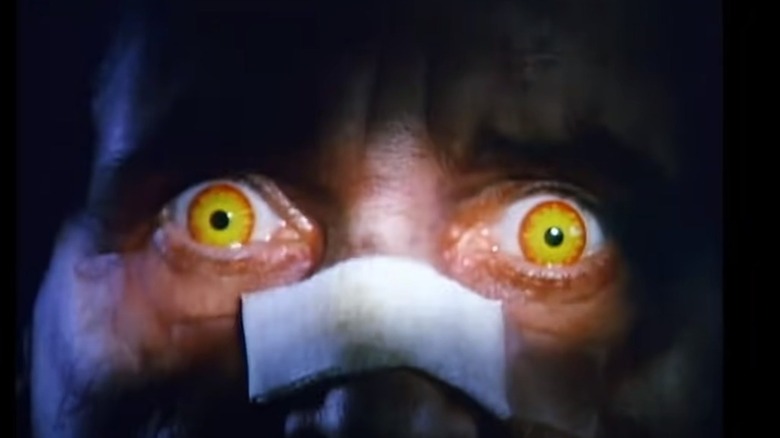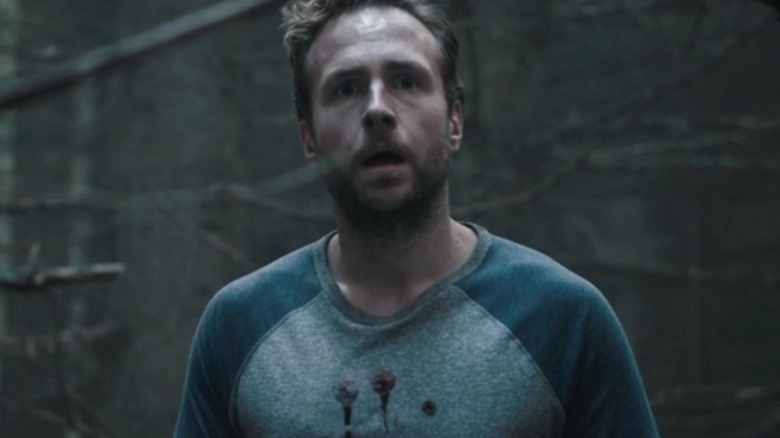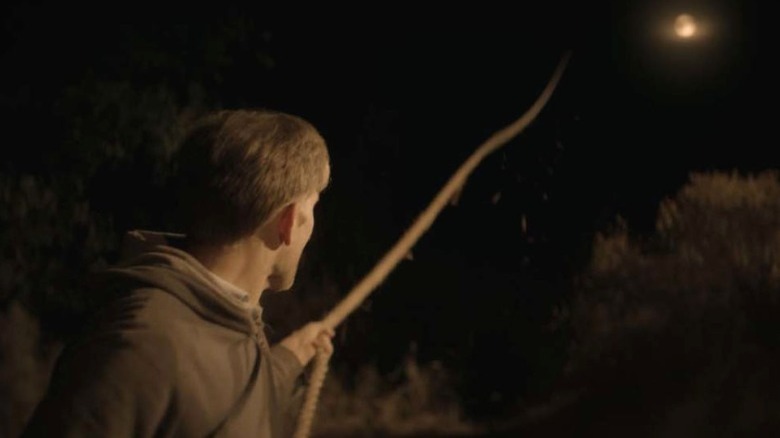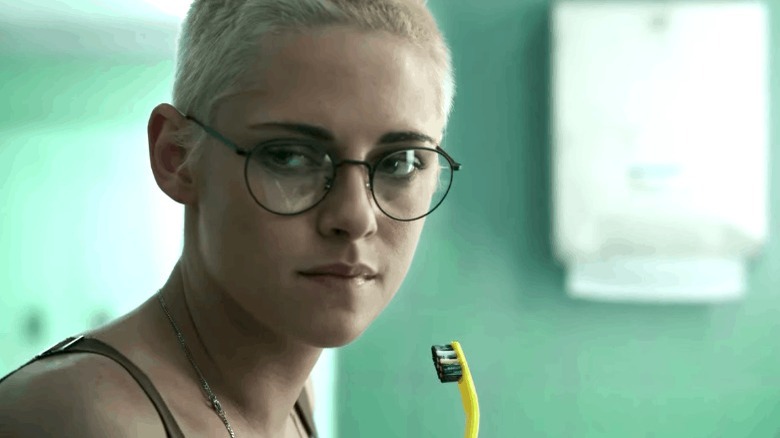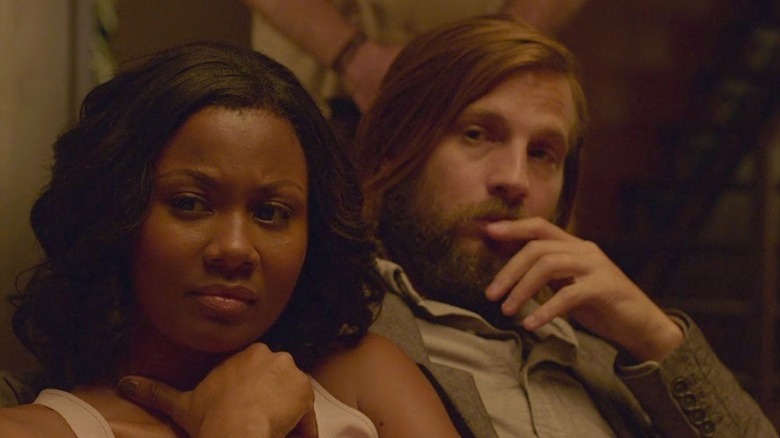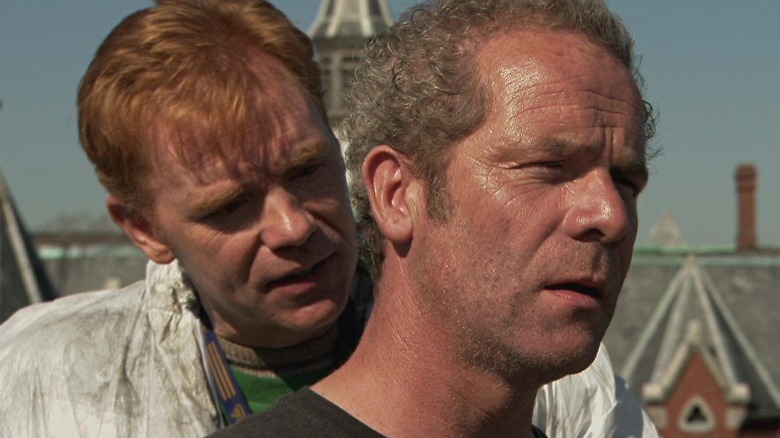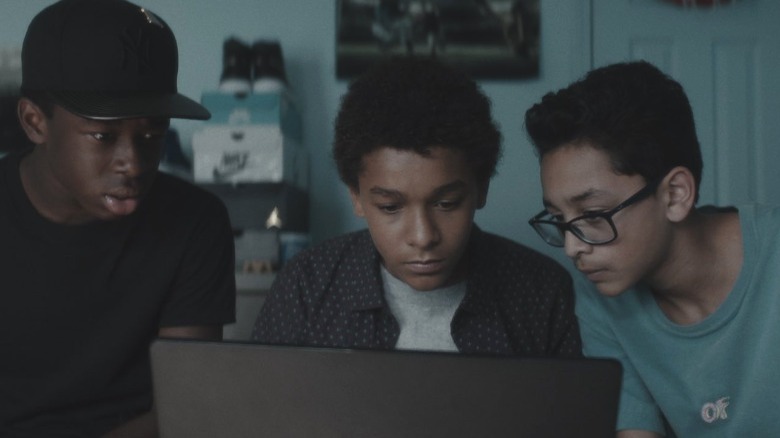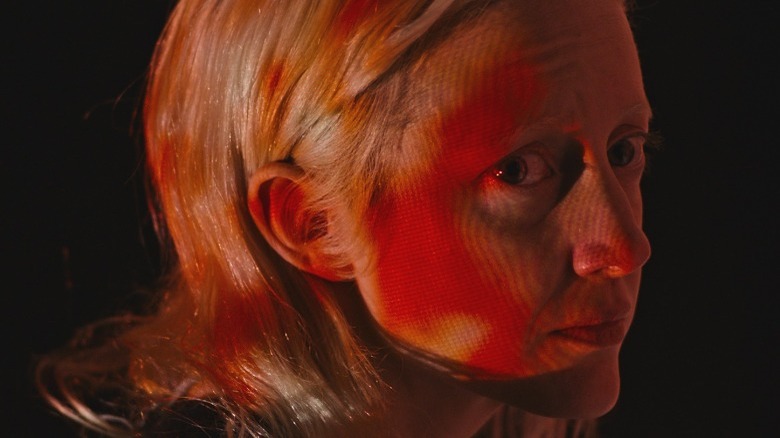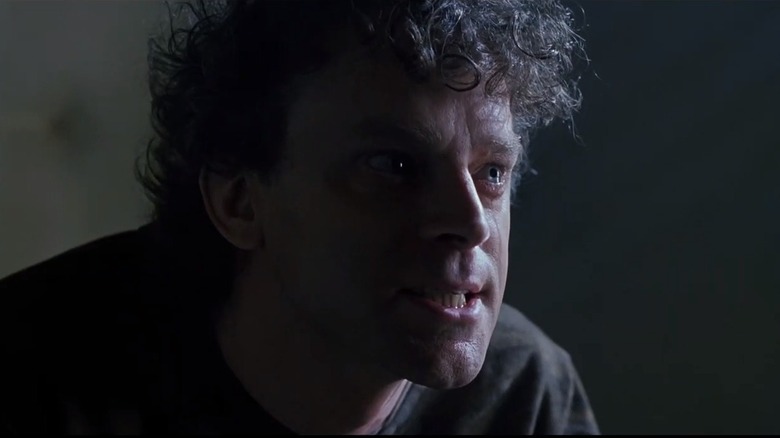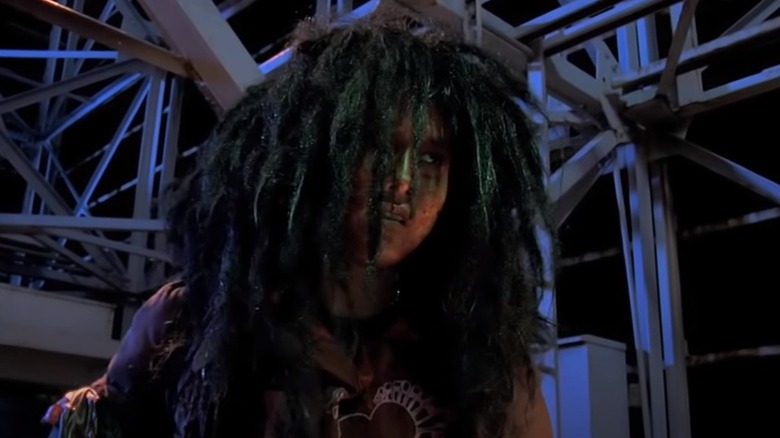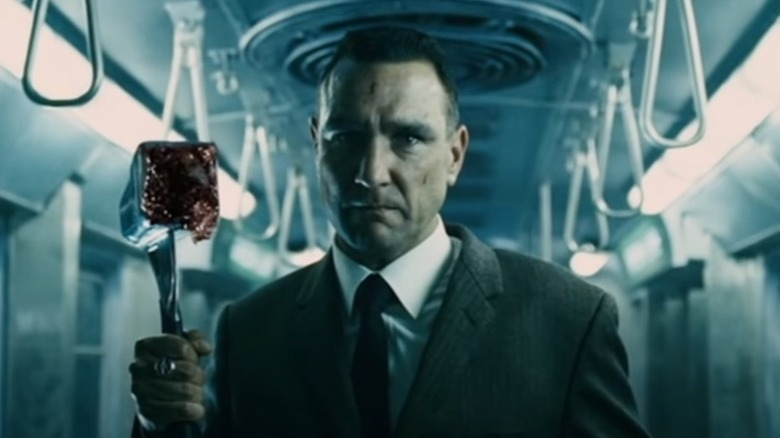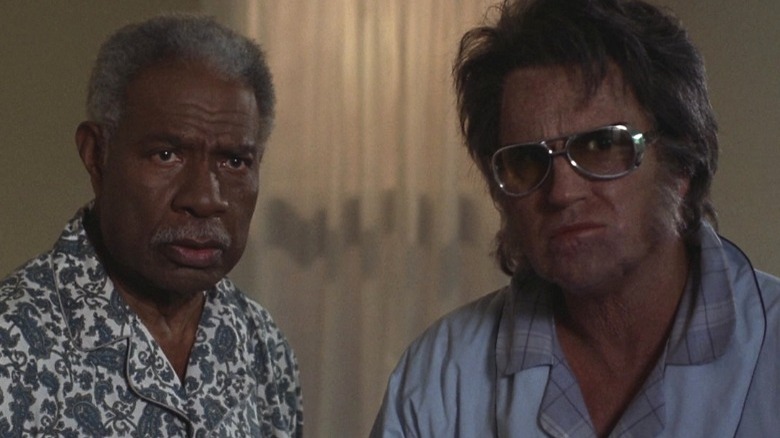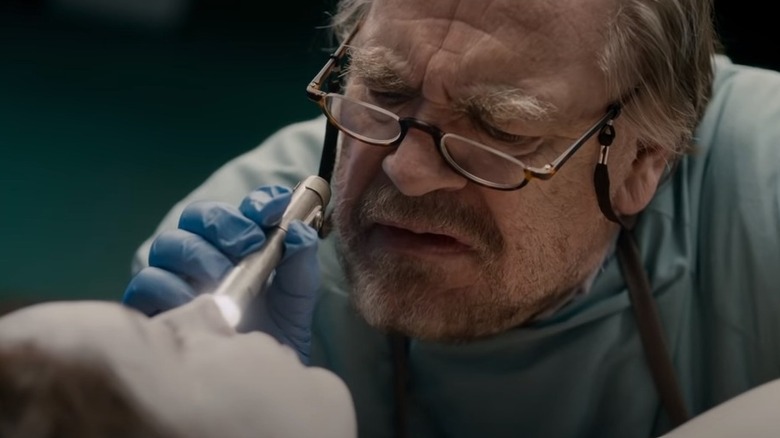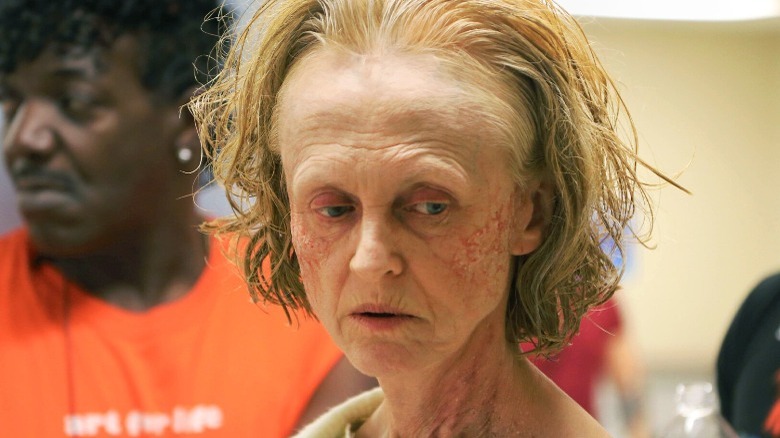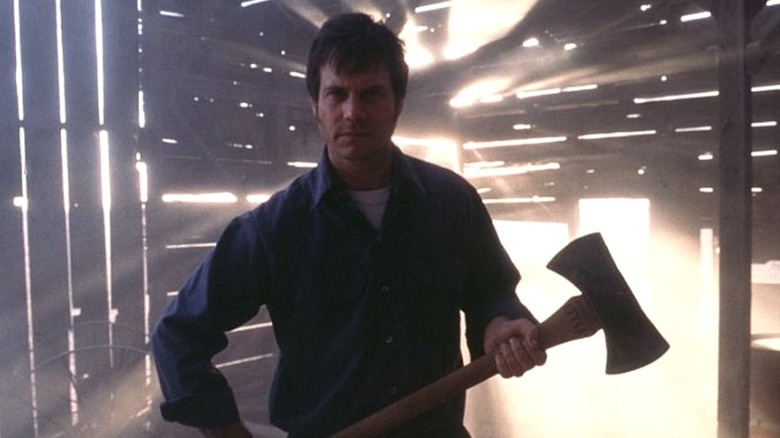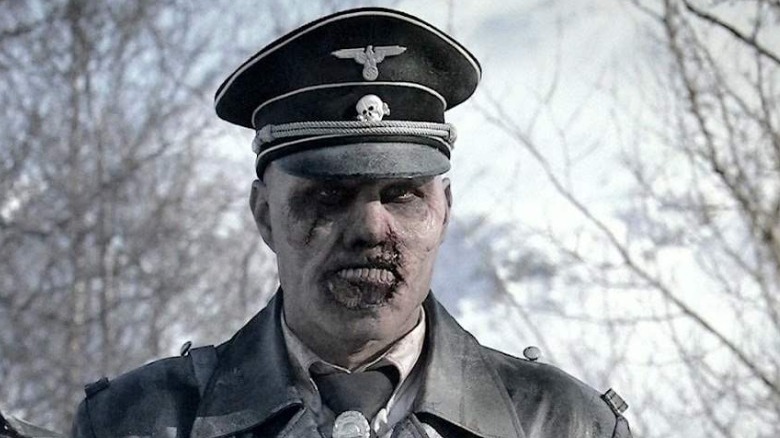15 Underrated Horror Movies You Should Really Check Out
The horror genre allows us to reckon with our deepest fears. Those fears aren't really about giant monsters or horrifying, gore-strewn landscapes, but the situations that create these mind-ripping terrors. Society's flaws are our biggest demons, and genre fiction is a safe way to explore and defuse them. Horror films like "The Babadook" can take on grief, ironically using fear to make us feel a little better about ourselves. But finding great horror, thoughtful or otherwise, can be a tough challenge. Streaming services offer loads of content to sift through, and it can be easy to miss new and old gems.
Yet, streaming's bounty is also a blessing. It's easier than ever to get a small-scale horror film out the door, and that's creating another generational bumper crop. We've put together a list of fifteen lesser-known horror movies to creep you out (and comfort you), and we'll talk about why these films may have something important to say.
The Ritual
Horror is often about survival, whatever form that torment takes. Unique horror import "The Ritual" isn't just about surviving a secret cult and their horrible, hidden god, but about survivor's guilt. Four buddies go on a hiking trip through the lush Scandinavian wilderness to honor their dead friend's memory. But one of them is carrying more than an offering to their deceased friend: He witnessed their pal's cold-blooded murder and did nothing to stop it. The weight of that guilt is everpresent.
One man's injury ostensibly leads the group to try and hack a shortcut through the thick forest, but it's also clear they're all feeling they are dealing with some heavy emotions. However, guilt and grief are not all that haunt these woods, and the hikers soon realize they're being stalked by something unnatural. The tension rises as these four stray further and further from any marked trail. Their final judgment comes at the hands of a creature from Norse myth, but be warned: This isn't a story about Marvel's charming vision of Loki. In these dark woods, the Norse god's descendants are pure nightmare fuel.
The Endless
Breaking free from a cult that you were born into is hard work for even the sturdiest of minds. It requires a lot of willpower and introspection. Finding new connections is necessary.
In "The Endless," two cult survivors have each other, but not much else. Justin and Aaron (played by filmmakers Justin Benson and Aaron Morehead) are brothers with differing recollections of their childhood experiences. Still adrift, they finally agree to visit the commune where they were raised to make peace with their past and reconcile their memories with reality.
Unfortunately, that reconciliation is derailed by whatever it is that's watching over this strange, secretive cult. Sure, Camp Arcadia is a little eccentric, but that doesn't explain the increasing sense that something horrible is lurking here. As the brothers explore their old stomping grounds, they find out that they're being watched by some unseen Lovecraftian horror that continues to toy with the commune. Whatever lurks there can control time, and more than one hapless soul is trapped in a bloody loop.
A terrifying indie romp, "The Endless" is a partial sequel to Benson and Morehead's 2012 film, "Resolution."
Underwater
"Underwater" gets a lot of blowback for feeling like an "Aliens" rip-off, but that's a fair cop. The film is shot with a greenish hue to ensure you never forget how deep the ocean is, and the feeling of being stalked never ends. Still, it's a better love letter to the work of H.P. Lovecraft than it has any right to be as a futuristic follow-up to one of the many doomed expeditions of the Cthulhu Mythos. Whatever awoke the great sleeper in his ocean lair isn't clear, and there are delectable hints that it may have been done on purpose. It's all background lore as Kristen Stewart struggles to survive, and that makes the film even more tantalizing.
Filmmaker William Eubank is Alex Garland on a budget. "Underwater" is his third feature as a director after and follows the moderate cult success of "The Signal." It's another under-the-radar win for the director. With character motivations and backgrounds requiring investment on a viewer's part to piece together the clues, "Underwater" is as sleek as an eel. "Underwater's" method of character building is similar but not as successful as that employed by Guillermo Del Toro in "Pacific Rim." Still, the results aren't empty, uninteresting characters. Their fates matter to the audience ... but not to dread Cthulhu!
The Invitation
Fewer people than ever know the horror of an old friend you haven't talked to in years reaching out to invite you to their Tupperware party. Today, you're likelier to get roped into whatever crypto-venture your cousin is into. Still, we're all more socially awkward than ever, and "The Invitation" neatly capitalizes on that with this get-together of beautiful people whose hosts look like they walked off of one of those colonialist South American retreat brochures.
This party's hosts are indeed selling something to their trapped guests. Ostensibly, it's a relief from grief — a psychological healing seminar that's totally not the product of a cult. However, our protagonist, Will (Logan Marshall-Green), can't shake the feeling that this group is a cult, and they have his depressed ex-wife ensnared in something dangerous.
Tightly paced with shocking moments spared for exactly the right times, "The Invitation" broke out of the film festival circuit thanks to the Alamo Drafthouse.
Session 9
Filmed on location at the now-demolished Danvers State Mental Hospital in Massachusetts, "Session 9" is a love letter from Lovecraft country. Mentioned by name in H.P. Lovecraft's stories "Pickman's Model" and "The Shadow Over Innsmouth" (and the inspiration for DC's Arkham Asylum), the stately old manor looked ultra-haunted even when it was thriving.
"Session 9" leans into its setting as hard as possible, bringing in a bunch of working joes to clean asbestos from the mental institution (which is unnamed in the film). The crew is on a tight deadline and stress levels are high even before the fellas get on site. Once they're there, things quickly spiral out of their control.
It's not hard to draw a line between "Session 9's" silent sanitarium and Kubrick's vision of Stephen King's Overlook Hotel in "The Shining." As in the setting of Kubricks' film and King's novel, something is still alive in the old hospital, hungry for new minds to explore and manipulate. Although what happens on-screen is mostly caused by mortal hands and little is overtly supernatural, it's impossible to avoid the sense that something is deeply wrong in this abandoned asylum. A classic cult thriller, "Session 9" is hard to forget.
Vampires vs. the Bronx
There are two excellent Black-led films about the inherent racism of gentrification: The 1992 classic "Candyman," based on Clive Barker's short story "The Forbidden" and 2020's "Vampires vs. the Bronx." Brought to life by Oz Rodriguez and Blaise Hemingway, it's full of snarky but loving homages to the vampire stories of yore. "The Vampyre" author John Polidori and F.W. Murnau, director of "Nosferatu," earn frequent shoutouts, plus there are plenty of nods to "Blade" in the film.
The heart of the movie is its plucky group of Bronx teens led by Miguel (Jaden Michael), the Lil Mayor of his neighborhood streets. All he wants to do is save the local bodega from being bought out by a smarmy real estate broker. However, Miguel doesn't know that the broker is serving a coven of vampires that is eyeing the Bronx as their next sprawling lair. Fortunately, his friends are pretty genre-savvy, and they're ready to square off against the only thing worse than Portland trust fund hipsters: undead white people. "Vampires vs. the Bronx is a movie that's as funny as it is gory — maybe funnier.
Possessor
Director David Cronenberg must be a proud dad. His son Brandon Cronenberg is honing his own style of social commentary mixed with eye-popping gore, and so far, his technique's making a real impact on the genre.
Cronenberg's 2020 feature "Possessor," a bit of near-future speculation and weird science, is a sleek monstrosity. In the film, a woman named Tasya Vos (Andrea Riseborough) uses mind-hijacking technology to carry out assassinations on the behalf of a mysterious corporation, but she's having trouble keeping control. Tasya's lingering humanity turns out to be a big issue for her corporate masters, and the film makes a point to compare her contractual existence with today's big tech.
It's no coincidence that Tasya's latest job places her in the mind of someone assigned to collate marketing data from smart home devices. Mindlessly staring into our homes during intimate hours, Tasya's target is just as invasive as she is. However, "Possessor" doesn't make a distinction as to which of them is worse and instead blends their psyches into one body horror-infused mess. "Possessor" is a movie about privacy and control that shoves the viewer's face into the bloody bones of its complex (and relevant) themes to make its point.
The Exorcist III
A director's cut of the troubled yet excellent "The Exorcist III" does exist, but it's still not what writer-director William Peter Blatty envisioned when he set out to adapt his 1983 novel "Legion" for the screen. Cobbled together from a VHS workprint and other rarities, the 2016 Shout Factory Blu-ray release, however, comes close. The result is a great attempt and a laudable effort, but for a casual viewer, the theatrical cut remains a better ride — even with the awful (and unnecessary) exorcism plot shoved into the third act.
A character actor with a gift for the eccentric and frightening, Brad Dourif elevates any film in which he appears. Dourif never phones in a job, running headlong into every performance at full speed. In the film, Douriff is the Gemini Killer, a serial murderer glorying in his bloody work at the behest of a demonic master. In a bizarre twist, the Gemini Killer shares the body of the supposedly dead Father Karras (Jason Miller), the empathetic but doomed priest of the original "Exorcist" film. Featuring one of the greatest monologues in horror history, "The Exorcist III" may be Brad Dourif's finest hour.
Tokyo Gore Police
Many people (including me) will recommend a movie with the caveat, "Oh, but this isn't for everyone." The Japanese gonzo horror flick "Tokyo Gore Police" is most assuredly not for everyone, and I mean that. "Tokyo Gore Police" is about a special police operation to stop a DNA-mutilating, serial killing mad scientist. It's not only one of the most hilariously over-the-top gorefests ever, it's a movie experience in which you gotta get cool with a lot of weird stuff really quick.
There's a living human chair in this movie. We all thought that scuttling human-spider construct the Harkonnens had in "Dune" was wild, right? This human chair is the color of flayed flesh and as raw as a freshly butchered pork tenderloin. It even has a working bladder!
Still, the human chair is not the weirdest thing in the film. It's not even plot-important. More essential are the horrific yet hilarious bodily mutations that occur throughout the film. Somewhere in this sea of blood is some commentary about police corruption and atonement. However, for the audience, "Tokyo Gore Police" is about lying in bed at night after viewing, thinking about that human chair.
The Midnight Meat Train
Clive Barker's seminal short story collection "Books of Blood" is a treasure trove for filmmakers who are willing to experiment. "The Midnight Meat Train" is from the first volume in the series and tells the story of a young man who moves to the big city and discovers a terrifying secret. The film adaptation, which stars Bradley Cooper, changes and expands some of the lore in Barker's economical tale and dramatically ups the gore quotient.
The cinematic version of "The Midnight Meat Train" transforms its young protagonist (Cooper) into an ambitious photographer who stumbles onto the trail of a serial killer known as The Butcher (Vinnie Jones). The 2008 film is an early role for Cooper who would break through into mainstream success a few years later.
As finely tuned as "Hellraiser," "The Midnight Meat Train" is a showcase for Barker's ability to tread a nuanced line between serenity and raving horror. Grim and gritty with a monochrome palette and some great shots, it's the best Barker adaptation since 1990's "Nightbreed."
Bubba Ho-Tep
Don Coscarelli creates films destined for cult immortality. The man behind both "The Beastmaster" and "Phantasm" franchises, 2002 saw him release what I consider to be his magnum opus. "Bubba Ho-Tep" is based on Joe R. Lansdale's 1994 novella of the same name. A jaunty thrill ride of laughs and gore, "Bubba Ho-Tep" pits two decrepit nursing home coots against a rampaging mummy. However, these aren't just any old men. They claim to be John F. Kennedy and Elvis Presley, and it's up to them to save the souls of their fellow retirees. Although they fear death, they're not about to be lured by the mummy's corrosive idea of eternal life.
"Bubba Ho-Tep" is a movie that puts the truth exactly where it should be — by the wayside. It doesn't matter if Ossie Davis is actually playing JFK or if B-movie god Bruce Campbell is actually playing Elvis. What matters is that their characters believe themselves to be the assassinated 35th president and the King of Rock 'n Roll.
This film is one of the best campy (and criminally underseen) horror films of all time. Bubba Ho-Tep is a scary, funny romp with heart.
The Autopsy of Jane Doe
When you hire Brian Cox to do a job, you're going to get an on-point performance. Bombastic and introspective at the right turns, he's a blessing to "Trollhunter" director André Øvredal's second film "The Autopsy of Jane Doe." Cox plays Tommy Tilden, a small-town coroner guiding his son Austin (Emile Hirsch) through the nuances of their chosen profession. Unfortunately, their lives are upended when the body of an unidentified woman lands on their autopsy table.
"The Autopsy of Jane Doe" uses sound and a claustrophobic setting to marvelous effect. Almost the entire film happens within the confines of a single autopsy room. Øvredal builds his scares subtly but kicks you in the gut once things really get out of hand. Although the mysterious Jane Doe is as mute and immobile as any dead person should be, the film's climax reveals that her hellish journey is just beginning.
The Taking of Deborah Logan
Found-footage horror can be tough to pull off. When it works well (as in the Spanish zombie film "REC"), it's spectacular. When it falls into cheesy pointlessness, (as in "Quarantine," the American remake of "REC") there's no coming back. Nevertheless, it is a subgenre that's great for filmmakers with big ideas and small budgets. "The Taking of Deborah Logan" is a surprisingly intelligent found-footage shocker that takes on such tough subjects as Alzheimer's disease and elderly dementia.
The film uses horror to broach the complicated topics of aging, mortality, the nature of the supernatural. Although there's a surprising amount of overlap with the more popular "Hereditary," it keeps a tight focus on its pitiable protagonist (played Jill Larson who undergoes a terrifying transformation), and the results are uniquely unsettling. A tightly wound thriller, "The Taking of Deborah Logan" spirals into utter mayhem in its final act.
Frailty
Bill Paxton's short life was filled with a wealth of unique performances. From "Aliens" to the underrated vampire flick "Near Dark," he was excellent at adding emotional impact and levity to horror.
In his feature directorial debut "Frailty," Paxton stars as the tormented patriarch of the Meiks, a man who claims he serves God's will by destroying Satan's demons. Years later, his son, played by Matthew McConaughey, approaches an FBI agent (Powers Boothe) to explain the holy madness that gripped the Meiks family.
An unassuming film with a finale that upends everything the audience has been led to believe, "Frailty" is one of the most underrated horror films in a generation. The film seems to offer a solid opinion about whether or not God's hand is truly behind the murders the Meiks family commits. Are the murders really the result of the righteous wrath of God? Or have the Meiks — and the audience — been manipulated all along? Either way, it's a great movie and a high point in Bill Paxton's career.
Dead Snow
The only thing better than a zombie movie is a Nazi zombie movie. There are few cinematic experiences as satisfying as watching undead Nazis eat it in the goriest, most disgusting ways imaginable.
In 2009, the Norwegian black comedy horror film "Dead Snow" gave us this very gift. Opening with a sequence vaguely reminiscent of John Carpenter's "The Thing," the tone is set for a group of vacationing students to have the worst holiday of their lives. The friends set up camp at a remote cabin deep in the bucolic wilds of rural Norway, only later becoming aware of the region's dark history of Nazi occupation in the Second World War.
Entwined with this history is Norway's own zombie legend, the draugr. Intimately familiar to anyone who's played "Skyrim," these treasure-obsessed undead are scary enough as they are. Making them Nazis adds another level of spookiness as well as making their comically gruesome deaths even more entertaining. Knocking out waves of ravening undead has never been more cathartic.
